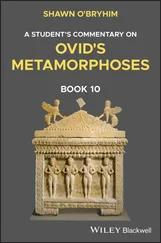Ovid - Fasti
Здесь есть возможность читать онлайн «Ovid - Fasti» — ознакомительный отрывок электронной книги совершенно бесплатно, а после прочтения отрывка купить полную версию. В некоторых случаях можно слушать аудио, скачать через торрент в формате fb2 и присутствует краткое содержание. Жанр: foreign_poetry, Поэзия, foreign_antique, foreign_prose, на латинском языке. Описание произведения, (предисловие) а так же отзывы посетителей доступны на портале библиотеки ЛибКат.
- Название:Fasti
- Автор:
- Жанр:
- Год:неизвестен
- ISBN:нет данных
- Рейтинг книги:3 / 5. Голосов: 1
-
Избранное:Добавить в избранное
- Отзывы:
-
Ваша оценка:
- 60
- 1
- 2
- 3
- 4
- 5
Fasti: краткое содержание, описание и аннотация
Предлагаем к чтению аннотацию, описание, краткое содержание или предисловие (зависит от того, что написал сам автор книги «Fasti»). Если вы не нашли необходимую информацию о книге — напишите в комментариях, мы постараемся отыскать её.
Fasti — читать онлайн ознакомительный отрывок
Ниже представлен текст книги, разбитый по страницам. Система сохранения места последней прочитанной страницы, позволяет с удобством читать онлайн бесплатно книгу «Fasti», без необходимости каждый раз заново искать на чём Вы остановились. Поставьте закладку, и сможете в любой момент перейти на страницу, на которой закончили чтение.
Интервал:
Закладка:
287. Face , fac.— Ministros pacis , Tiberius and Germanicus.
288. May not he (Germ. or Tib.) who has procured this peace for the empire, break it by resuming arms.
289, 290. The poet now ceases to discourse with Janus, and informs the reader of what he had found in the Fasti, namely, that two temples had been consecrated, at different times, on the Kalends of January.
291, 292. A.U.C. 462, in consequence of a plague at Rome, by the direction of the Sybelline books, an embassy was sent to Epidaurus, and one of the serpents sacred to Aesculapius was brought to Rome; a temple was built to the god on the island in the Tiber. See Met. xv. 622—744. Ph. n . Cor. nat . Aesculapius. See Mythology, p. 384.
293, 294. In parte est , is a sharer in the day and place. The temple of Jupiter in the island was dedicated by C. Servilius Duumvir, some time after the second Punic war.
295-310. Being now for the first time about to perform the other part of his promise, namely, to note the risings and settings of the stars, he prefaces it by the praises of the astronomers. See Introd. § 1.
299, 300. As the study of astronomy elevates the mind above the terrestrial abode of men, so it raises, or should raise it, above all mean and groveling pursuits and ideas.
305. They have brought the distant stars to our eyes. Gierig, following one MS. for nostris , reads terris , a reading which Burmann approved, though he did not adopt it.
307, 308. Alluding to the Alodïes, Otus and Ephialtes, Hom. Od. xi. 304-316. Virg. G. I. 280. Hor. Carm. III. 4, 49.
311-314. The cosmic setting of Cancer, on the morning of the 3rd January, the third before the Nones. See Introd. §. 1.
316. The cosmic rising of Lyra, which was usually attended with rain.
317, 318. On the 9th January was celebrated the festival of Jannus, named the Agonia or Agonalia, the origin of which name the poet now proceeds to discuss.
319-322. One etymon was ago , to do, as the popa or officiating minister of the altar cried Agone ? Shall I act? before he struck the victim.— Agatne . Four of the best MSS. read Agone ; they are followed by Heinsius, Burmann and Gierig.
323, 324. A second from agor , because the victims were led to the altar. Both equally silly.
325. a third; quasi Agnalia from Agna .
327, 328. A fourth from the Greek [Greek: agonia, agoniazein]— In aqua , the vessels of water by the altar in which the knives were placed.
329, 330. A fifth from the Greek [Greek: agones] ludi .
331. A sixth, which the poet approves, from Agonia , an old name for cattle.
333, 334. A ram was the victim offered on this day by the Rex Sacrorum.
335, 336. Two trifling etymoligies. The victima , he intimates, was offered after a victory; the hostia , in time of peace, when there was no enemy, hostibus amotis . Krebs reads a motis : almost all the MSS. a domitis .
337-456. A long digression on the origin and causes of the various sacrifices offered to the gods.
338. The Mola salsa .— Pura because it purifies or keeps from decay.
340. Hospita navis , a foreign ship.
343. Herbis Sabinis . The Savin , called by the Greeks [Greek: brathu]. Duorum generum est , says Pliny, altera tamaraci similis folio, altera cupresso .
344. A loud crackling of the leaves of the bay or laurel in the fire was a good omen.
347. This was in the golden age, before animals were slain in honor of the gods.
349. He now proceeds to explain how the altars came to be stained with the blood of animals. This was caused chiefly by the anger of the gods, on account of the mischief which they did.
357. [Greek: Kaen me phagaes epi rizan, omos eti karpophoraeoo Osson epispeisai soi, trage, Ouomeno], Euenus in Anthol. Gr. T. I. p. 165, Jacobs .
363. Aristaeus , the son of Apollo, by the nymph Cyrene. See Virg. G. iv. 281-558. Mythology, p. 294-296. This tale, after all, gives not the reason why the ox was offered in sacrifice.
381. Some popular legend probably assigned this silly cause.— Verbena , herbs gathered in a sacred place.
385. Persis , Persia.— Hyperiona , the Persian Mithras, the presiding deity of the Sun, identified by the Greeks with their god Helius, also called Hyperion.
387. Quod , because; given by Heinsius from the best MSS. others read _quaae.— Trip. Dianae , identifying her with Hecate. See above, v. 41.– Virgine , Iphigenia.
389. Sapaeos , a people of Thrace. Herod, vii. 110. Most MSS. have Sabaeos, or Saphaeos, but incorrectly.— Vidi . When Ovid was going into exile, at Tomi, A.U.C. 763, he passed through Thrace.
391. Custodi ruris , Priapus. This god who was chiefly worshiped at Lampsacus, was said to be the offspring of Bacchus and Venus. See Mythology, p. 205.
393. Festa , etc. the Trieterides, celebrated once in every three years.— Corymbiferi , Bacchus was frequently represented crowned with bunches of ivy-berries. Some MSS. read racemiferi .— Celebrabat , Heinsius, Burmann and Gierig, read celebrabas , on the authority of two MSS.
395. Di cultores Lycaei . Scil. the Pans and Satyrs, the gods of Arcadia. Gierig, on the authority of some of the best MSS. reads Lyaei . For Pan, etc. see Mythology, p. 198-205.
398. The Naïdes and other nymphs.
400. Priapus.
403. Parce is to be joined with miscendas .
407. That is, succincta .
410. Vincula nulla , they were barefoot. It is to be recollected that in the heroic ages, after which the poets modelled the life of the gods, the attendants at meals were females.
412. Pan.
414. Nequitia , lust.
420. She evinces her haughty contempt of him by her looks.
423. Ultima , the most remote.
425. Animam , his breath.
426. Digitis scil pedis , his toes. A beautiful description of one stealing on tip-toe.
436. Omne nemus , all the gods in the grove.
440. Hellesp. Deo . Priapus, the god of Lampsacus, on the Hellespont.
445. Linguae crimen . Still ascribing a revengeful character to the gods, he supposes them to be pleased with the sacrifice of the birds, who revealed their intentions to mankind.
447. Dis ut proxima . Flying high towards heaven. "Ye birds, That singing up to heaven gate ascend."—Milton.
448. Penna , the Praepetes ; ore , the oscines , as they were styled in language of augury.
453. See Liv. v. 47, for this well-known story.
454. Inachi lauta . Isis the Egyptian deity, supposed to be the same with Io, the daughter of the river-god, Inachus. See Met. I. 747, et seq . Mythology, 367.— Lauta , dainty, as lautioribus cibis utens , such as the livers of geese. Isis was much worshiped at Rome at this time.
455. Deae Nocti . A cock was sacrificed to Night, as being odious to her.— Ales , like the Greek [Greek: ornis], the bird [Greek: kat exochaen].
456. Tepidum diem , the dawn, warm after the chill of the night.– Provocat , calls forth.
457. The cosmic rising of the Dolphin, on the ninth of January.
459. Postera lux , the tenth of January, which, according to the poet, was the bruma , or middle of winter. Columella and Ptolemy place it on the 4th January, the day before the Nones; Pliny, xviii. 5, makes it the viii. Kal. Jan. or 25th December.
Читать дальшеИнтервал:
Закладка:
Похожие книги на «Fasti»
Представляем Вашему вниманию похожие книги на «Fasti» списком для выбора. Мы отобрали схожую по названию и смыслу литературу в надежде предоставить читателям больше вариантов отыскать новые, интересные, ещё непрочитанные произведения.
Обсуждение, отзывы о книге «Fasti» и просто собственные мнения читателей. Оставьте ваши комментарии, напишите, что Вы думаете о произведении, его смысле или главных героях. Укажите что конкретно понравилось, а что нет, и почему Вы так считаете.












